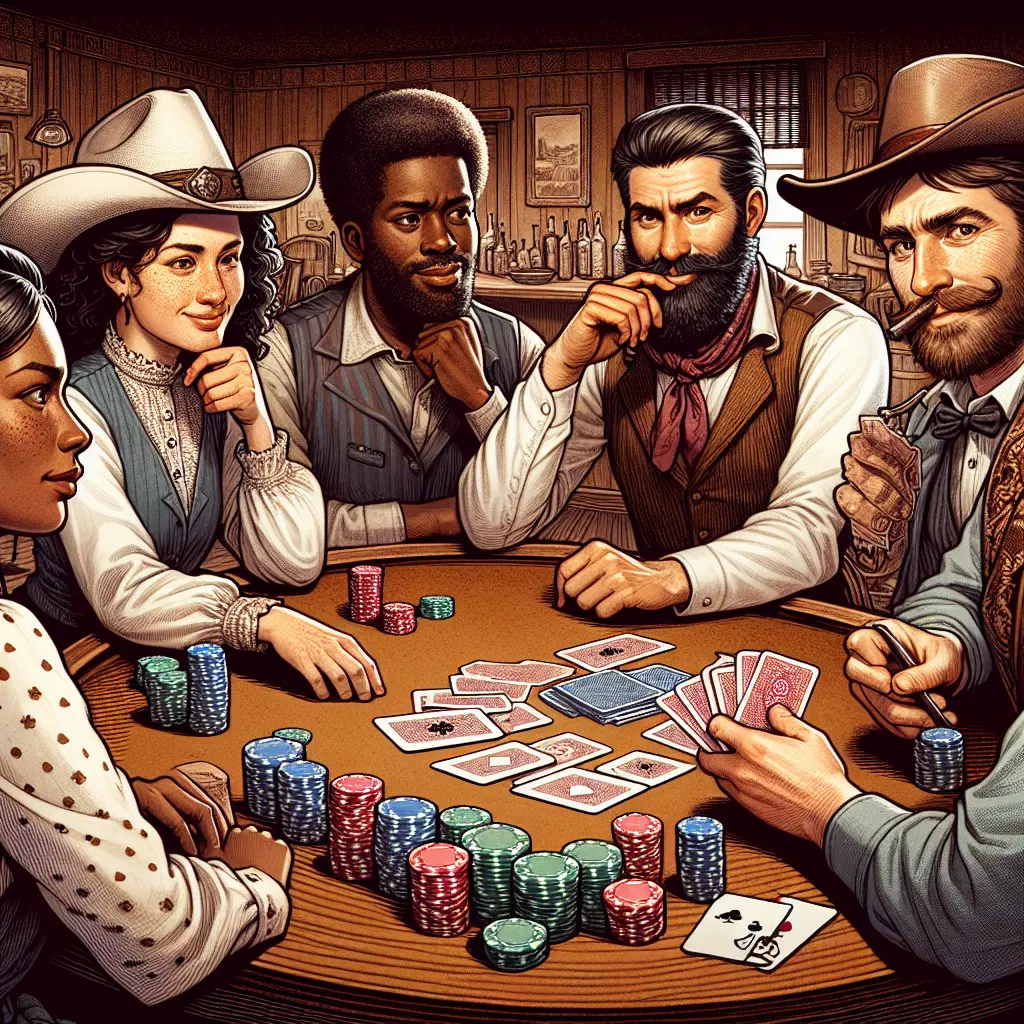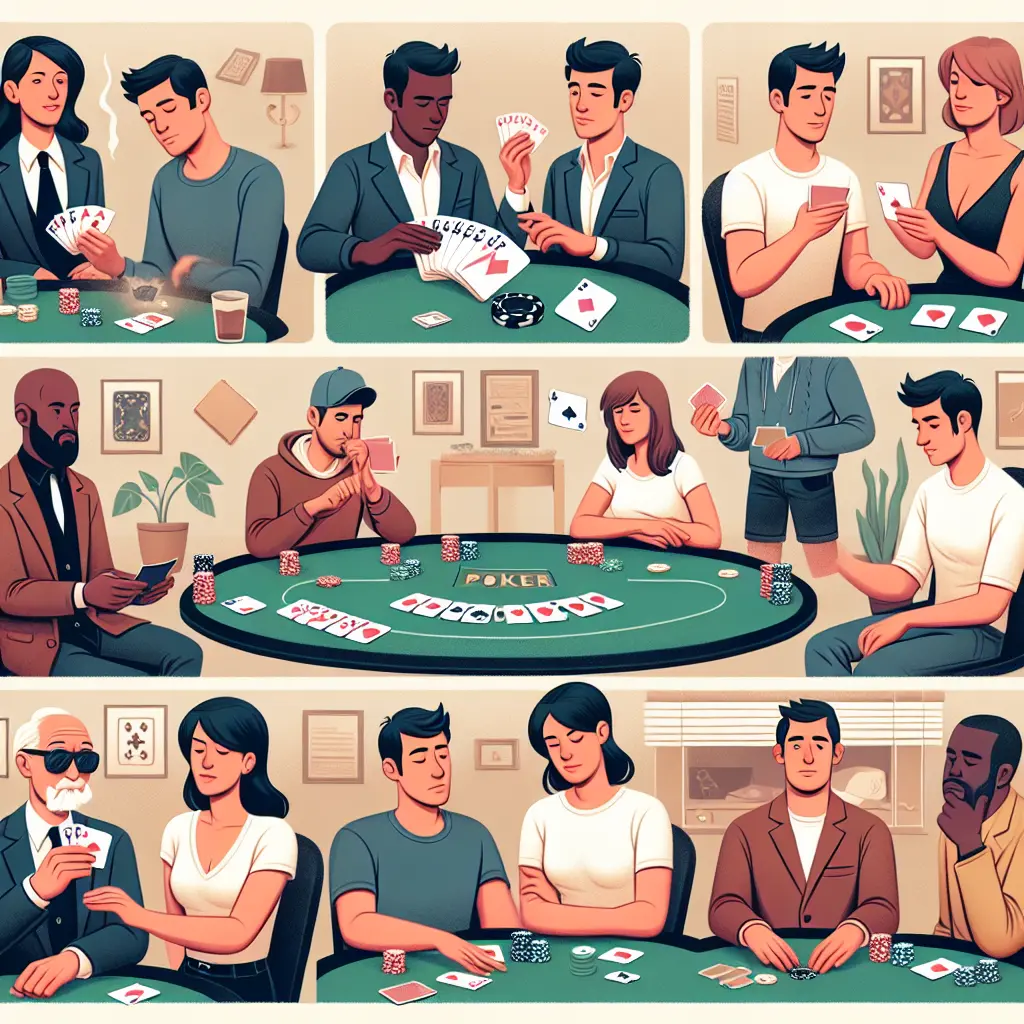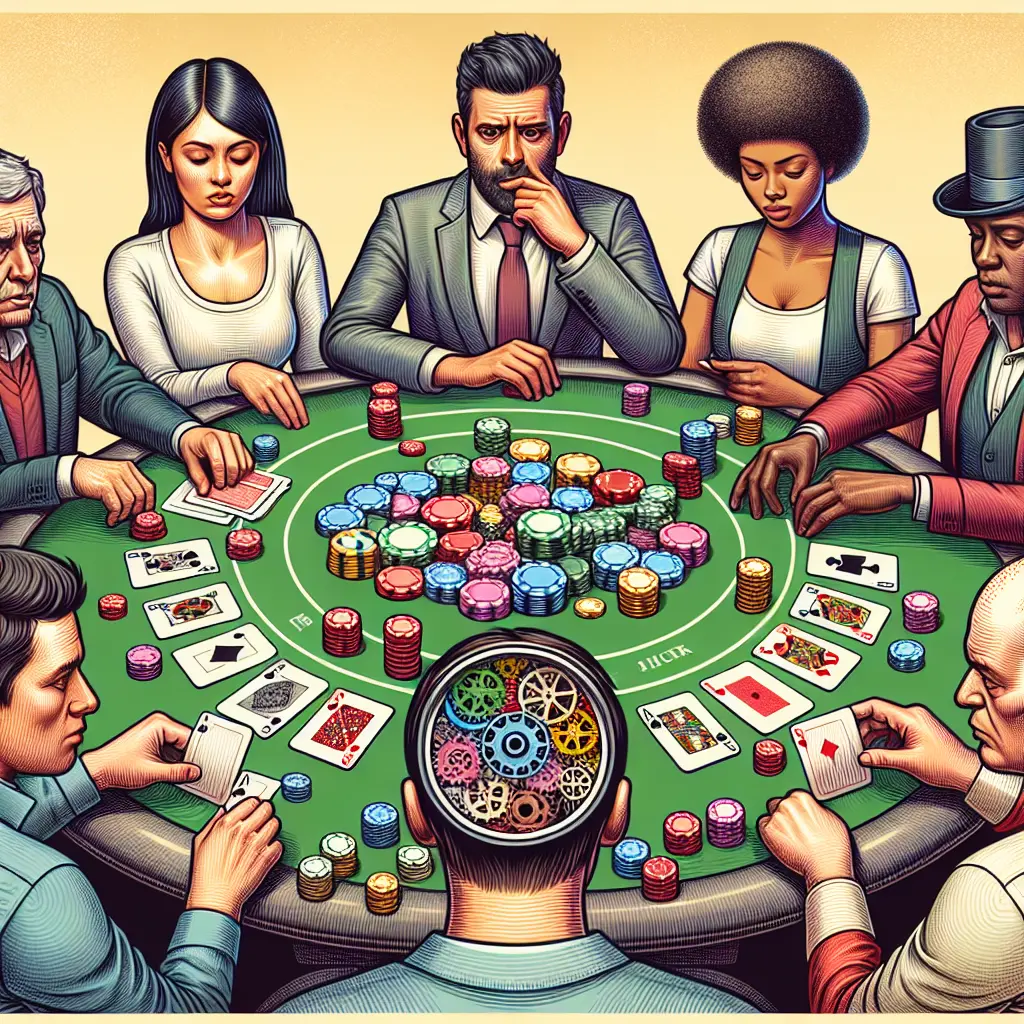In the intricate world of poker, every glance, every word, and every gesture can alter the course of the game. Known as a battlefield of wits and nerves, poker isn't just about the cards you hold; it's equally about mastering the art of player communication. This blog post delves deep into the impact of player table talk in poker dynamics, uncovering how verbal and non-verbal interactions can sway decisions and influence outcomes.
Poker dynamics encompass the various interactions and psychological strategies players engage in during a game. These dynamics are heavily influenced by 'poker table talk,' a term that refers to the dialogue between players during a hand. Such conversations can range from casual banter to strategic misinformation, designed to elicit reactions or mislead opponents about one's actual hand or intentions.
Table talk in poker serves as a double-edged sword. While it can be a potent tool for gathering insights about opponents' hands through their verbal cues and reactions, it also opens the player using it to potential reads by their opponents. The psychological strategies in poker thus often involve a delicate balance of revealing and concealing information through both verbal and non-verbal communication.
A classic example of strategic table talk is seen in high-stakes games where seasoned players adeptly use psychological warfare to unsettle opponents. They might casually comment on someone's hesitant behavior or confidently state the potential strength of their hand, regardless of what they actually hold.
Verbal cues in poker range from the tone, pace, and volume of speech to the specific choice of words. For instance, an overly confident tone might indicate a bluff, whereas a sudden quiet demeanor could suggest a player has drawn a strong hand. Non-verbal communication in poker – or 'poker tells' – include gestures like eye movements, facial expressions, and even the way players handle their chips.
Social Dynamics in Poker
The social dynamics at a poker table can greatly influence the game's outcome. Player interactions often lead to alliances or rivalries that can alter strategic decisions. The impact of table talk in poker extends beyond individual games, affecting long-term relationships and reputations within the poker community.
For instance, players who consistently engage in respectful and clever table talk are often regarded more positively, even if they're fierce competitors. Conversely, those who frequently intimidate or belittle others may find themselves isolated or targeted.
To better understand how these dynamics play out in real-world scenarios, let’s consider recent events like the Carl Hiaasen adaptation brought to screen by Vince Vaughn and 'Ted Lasso' co-creator Bill Lawrence. Though primarily a comedic endeavor, "Bad Monkey" illustrates how characters leverage psychological tactics and verbal exchanges to manipulate outcomes – a theme quite familiar to poker enthusiasts.
Moreover, events such as Slotozen Casino's comprehensive analysis provide data-driven insights into how player behavior patterns influence gambling outcomes, further emphasizing the significance of strategic communication in competitive settings.
Influence of Table Talk on Poker Outcomes
The influence of table talk on poker outcomes cannot be overstated. Skilled players use this tool to steer the flow of the game, potentially turning a weak hand into a winning one through sheer force of personality and strategic conversation. The effects of table talk can be so profound that many online poker rooms offer a chat function to simulate this aspect of live games, highlighting its integral role in the game’s dynamics.
In conclusion, understanding and mastering the art of table talk and player interactions in poker is crucial for anyone serious about excelling in this complex game. As we have seen, these elements impact not only individual hands but also the broader psychological landscape of a tournament or gaming session.
The artful interplay of verbal and non-verbal communication forms the core of poker dynamics, making it essential for players to continuously hone these skills. Whether you are a seasoned player or new to the world of poker, appreciating and applying these insights could significantly enhance your gameplay.
Thank you for joining me in this exploration of one of poker's most fascinating aspects. Remember, on the poker table, it's not just about how you play your cards but also how you play your opponent through strategic communication.










Leave a Comment